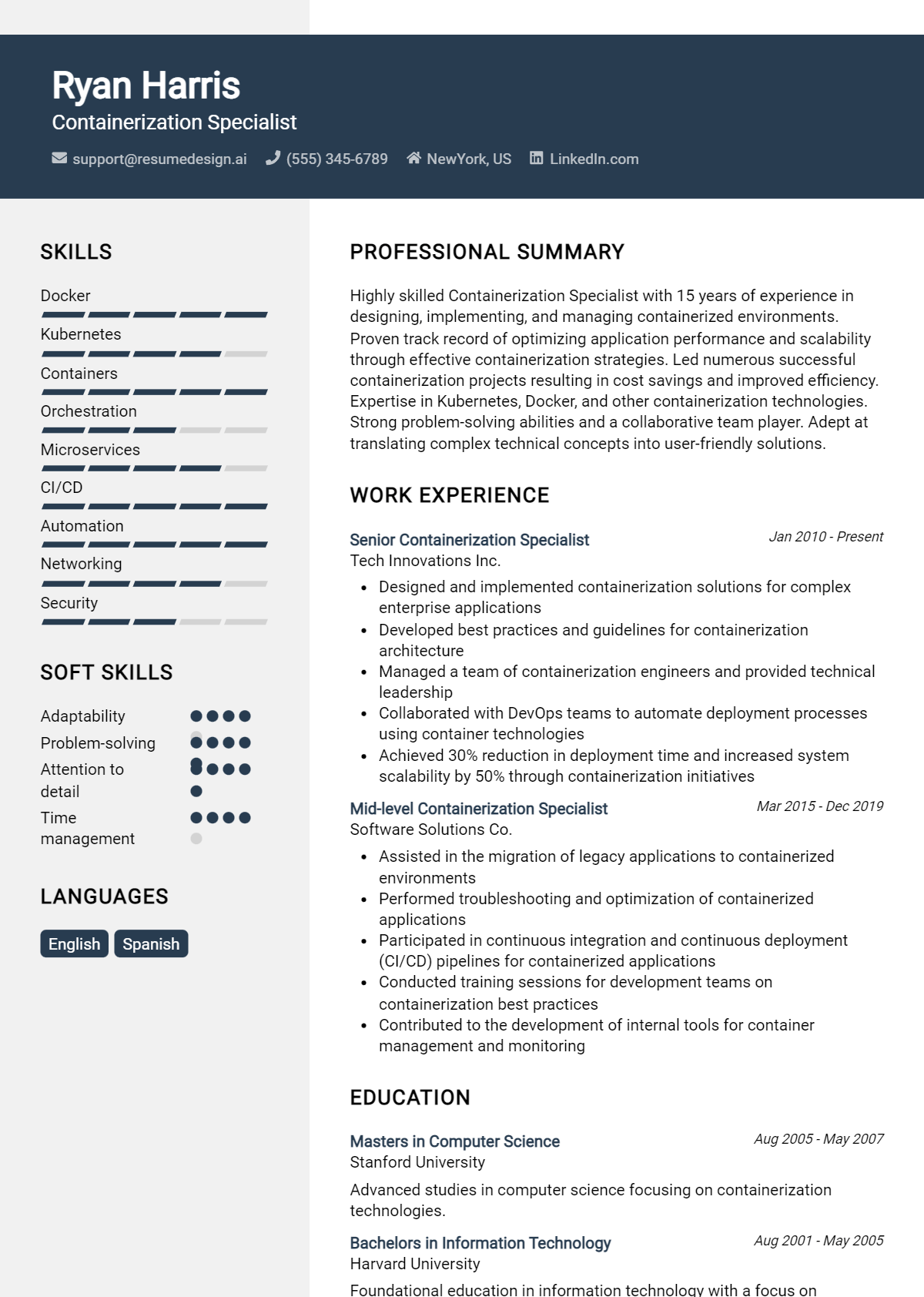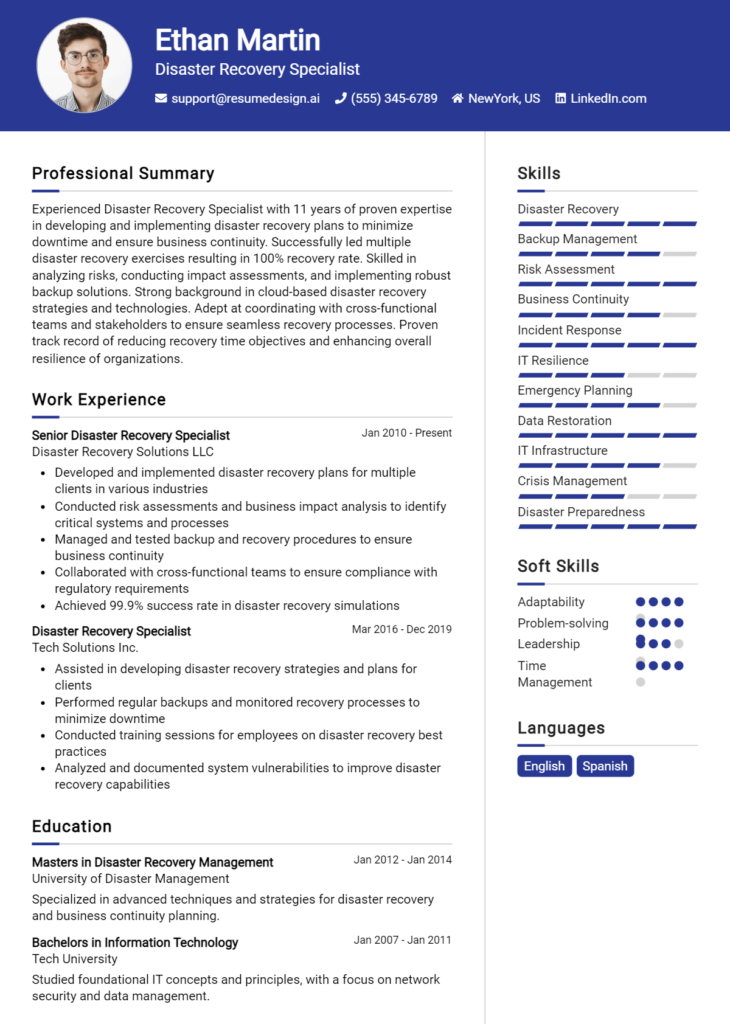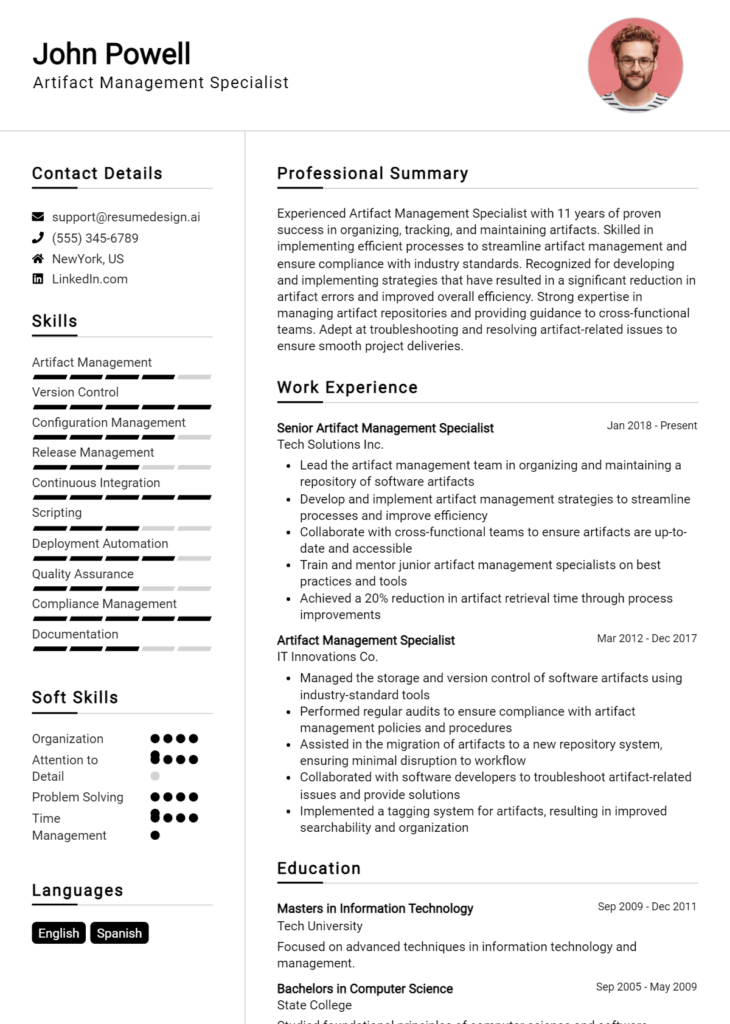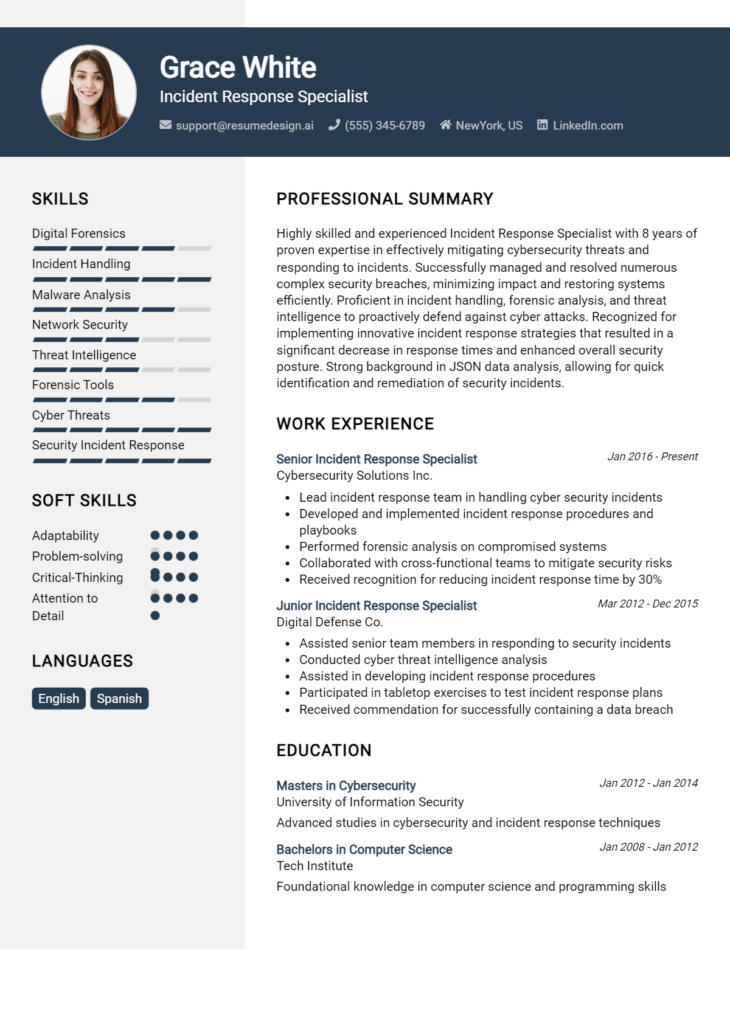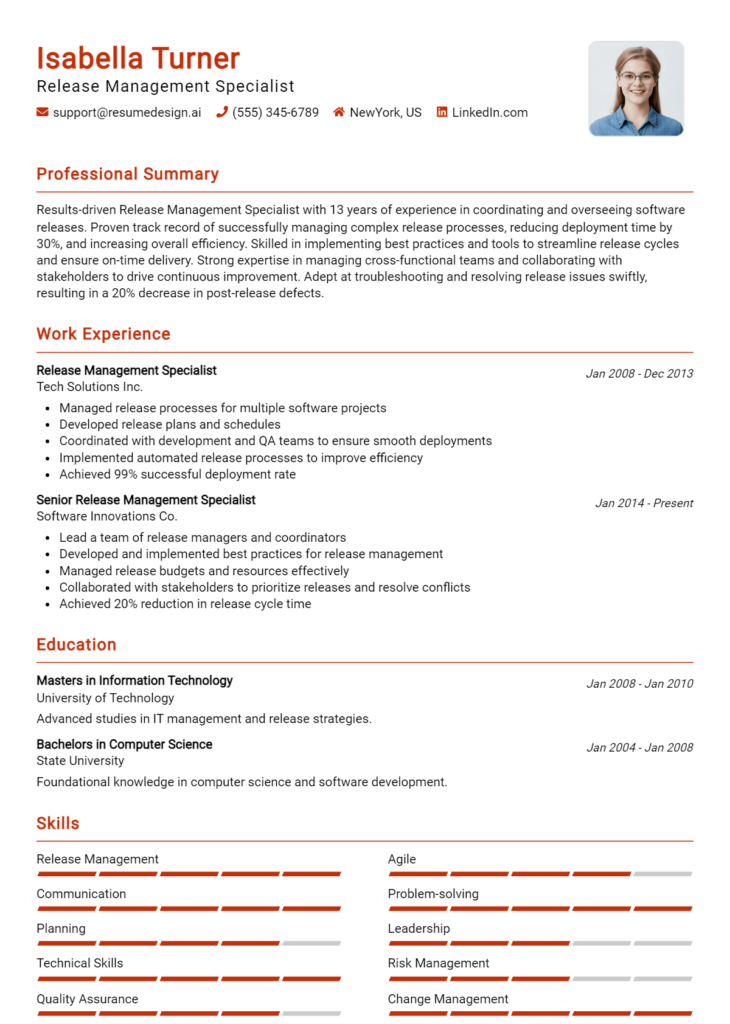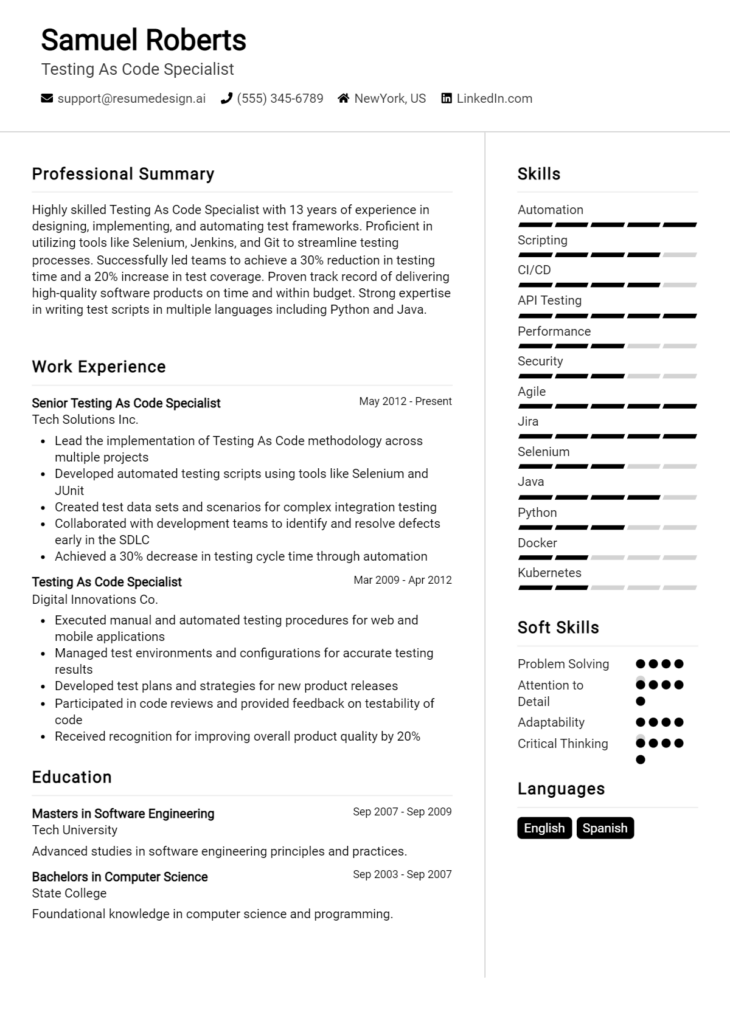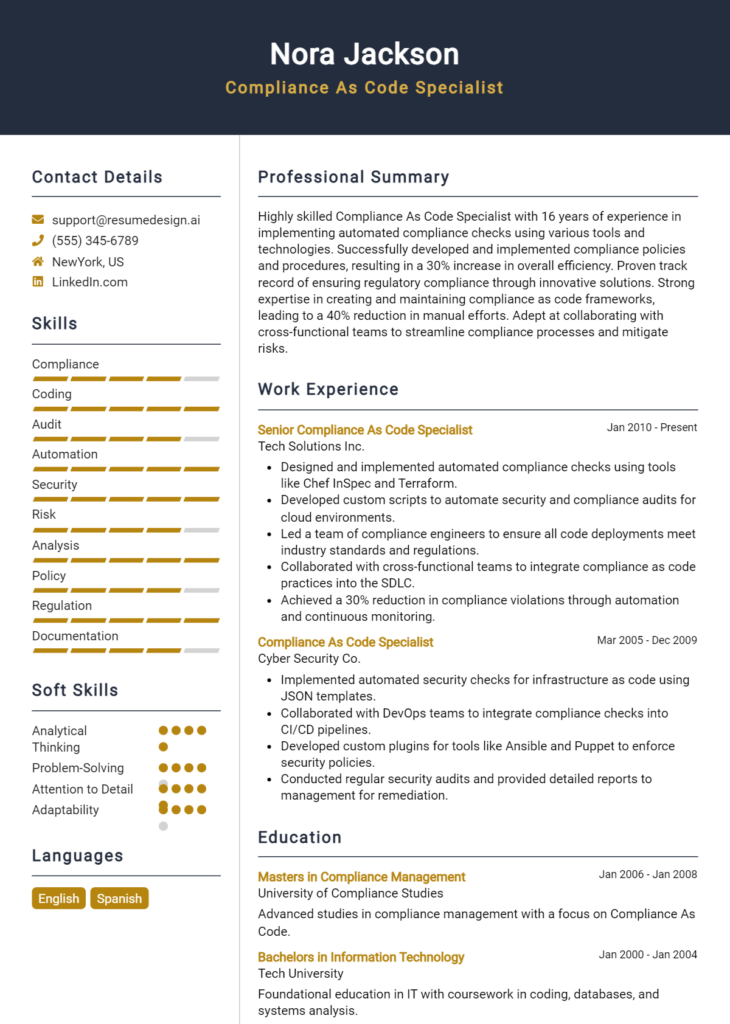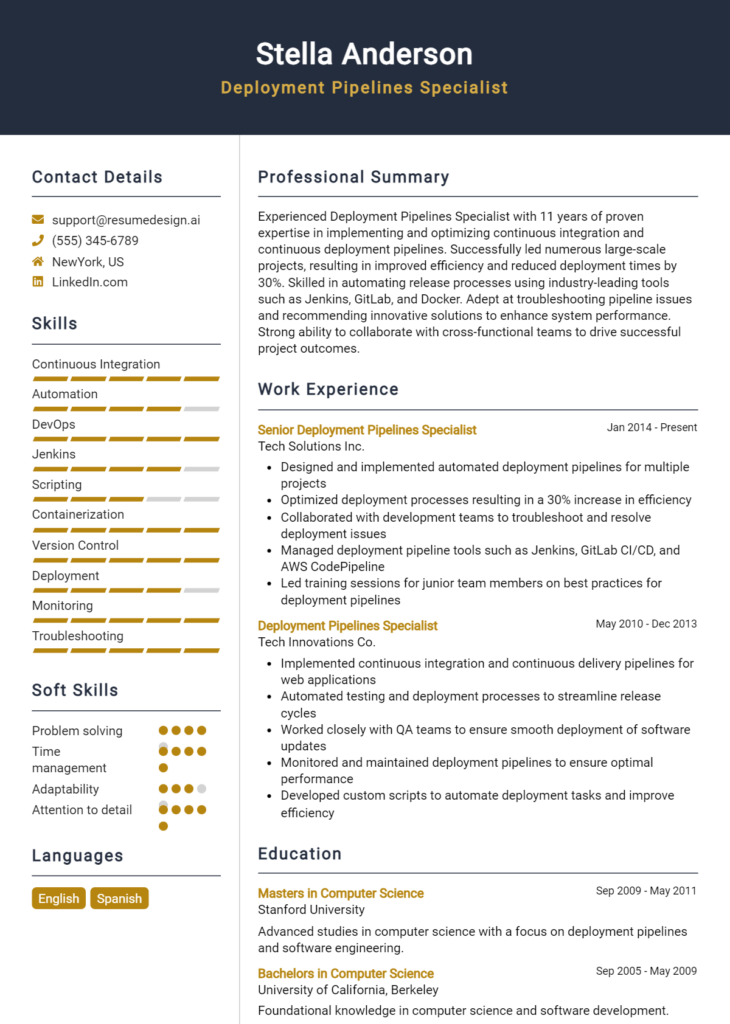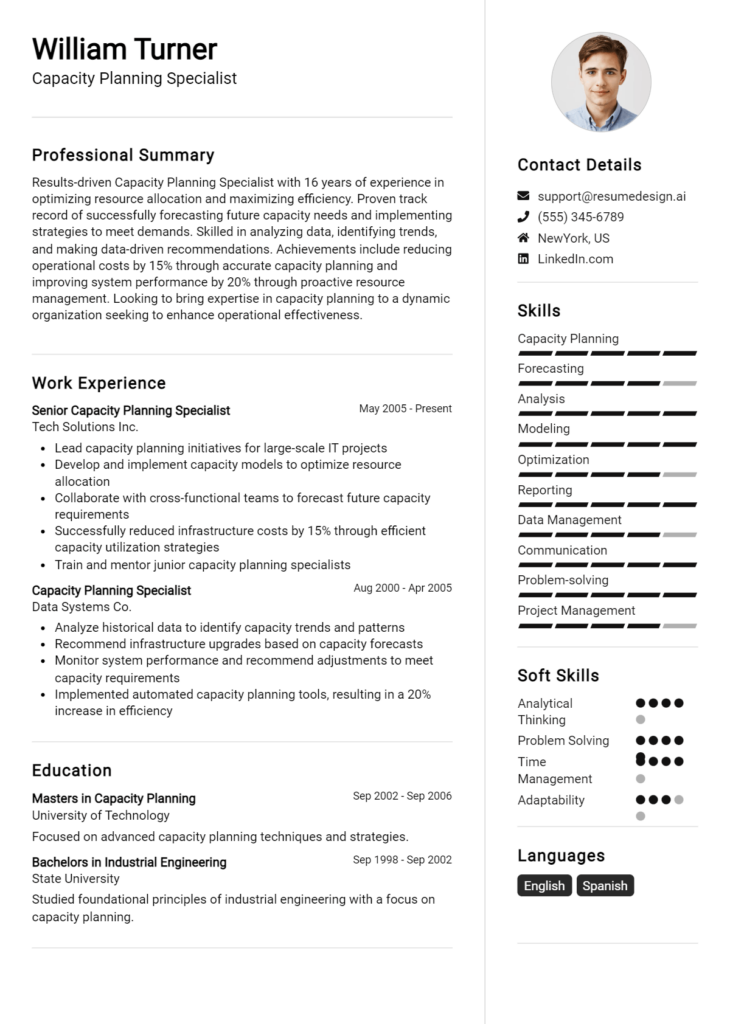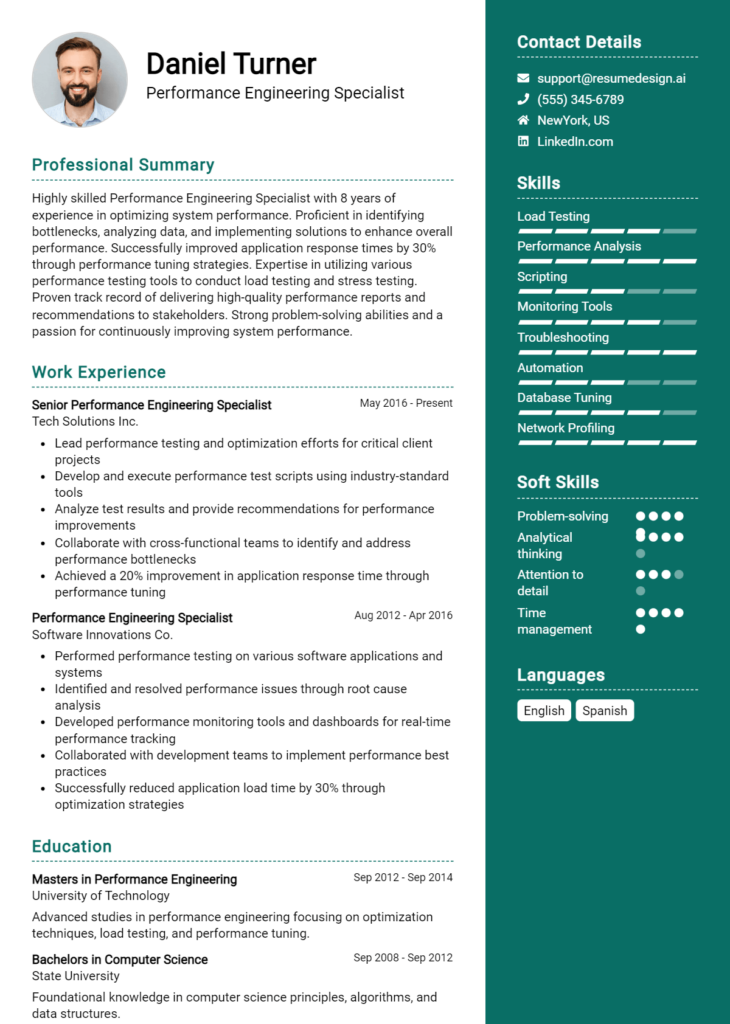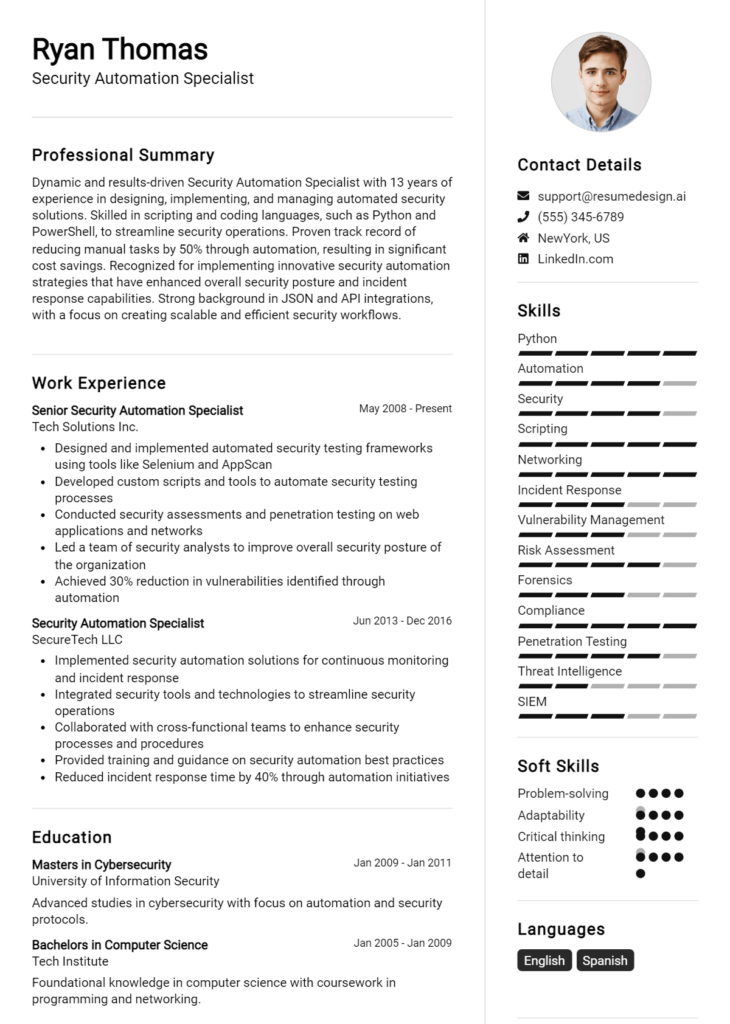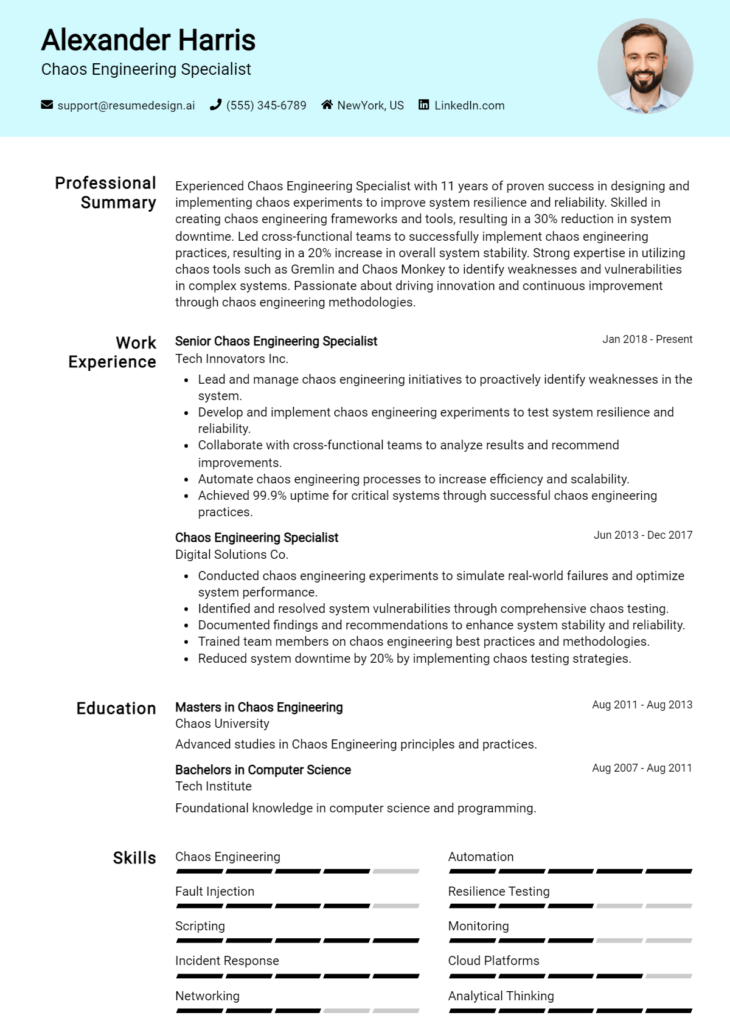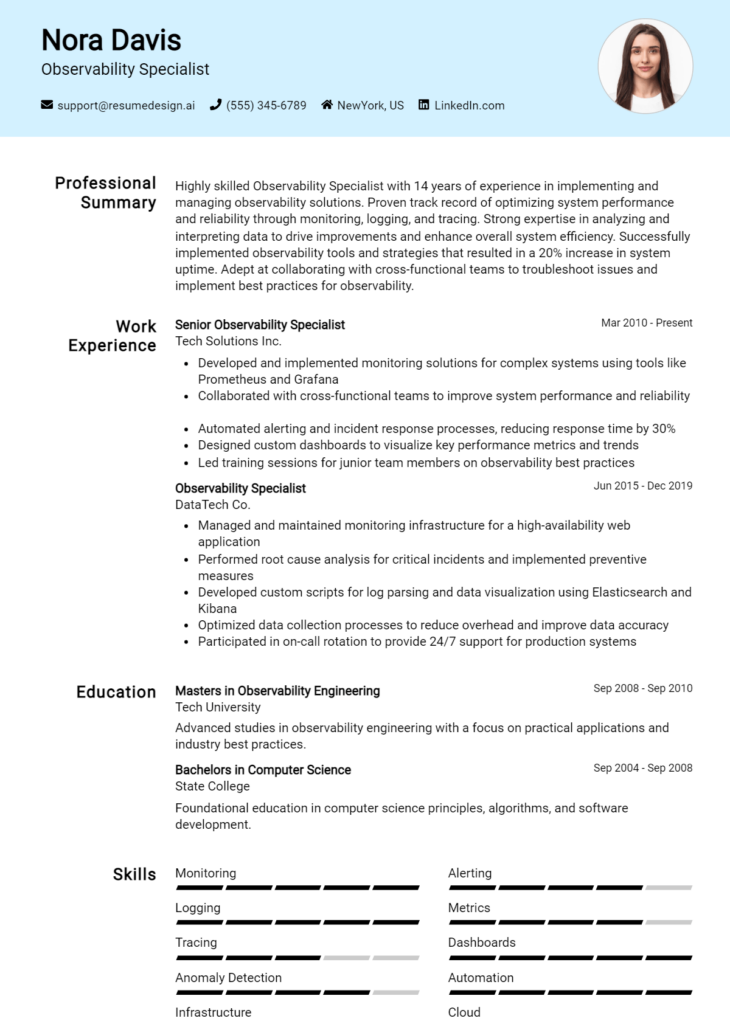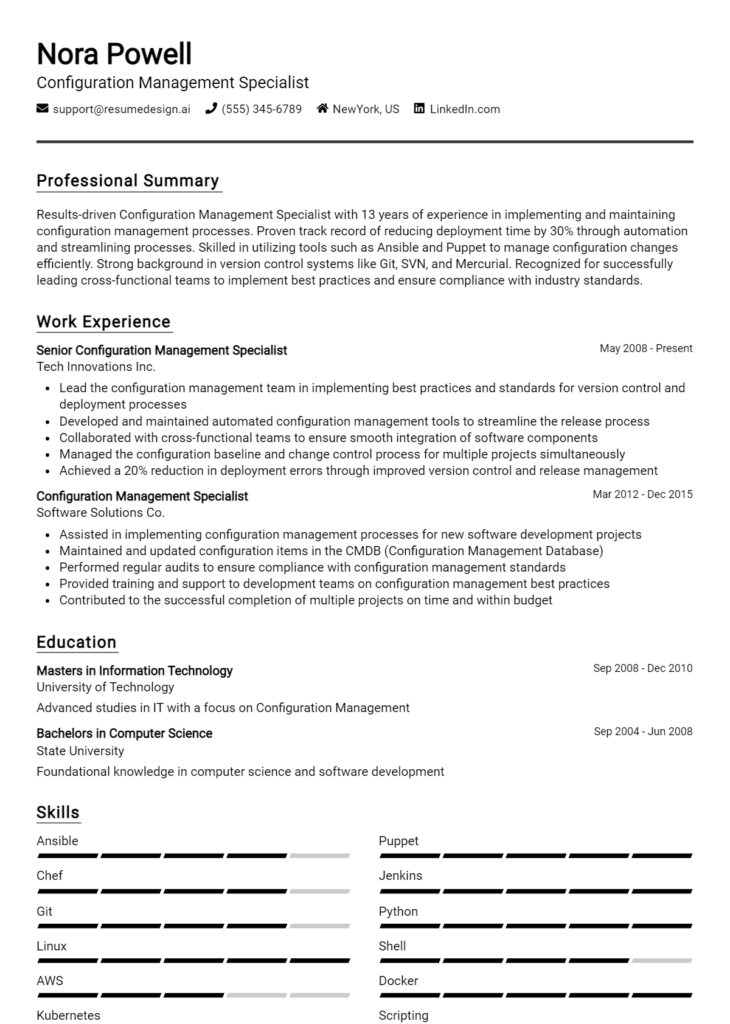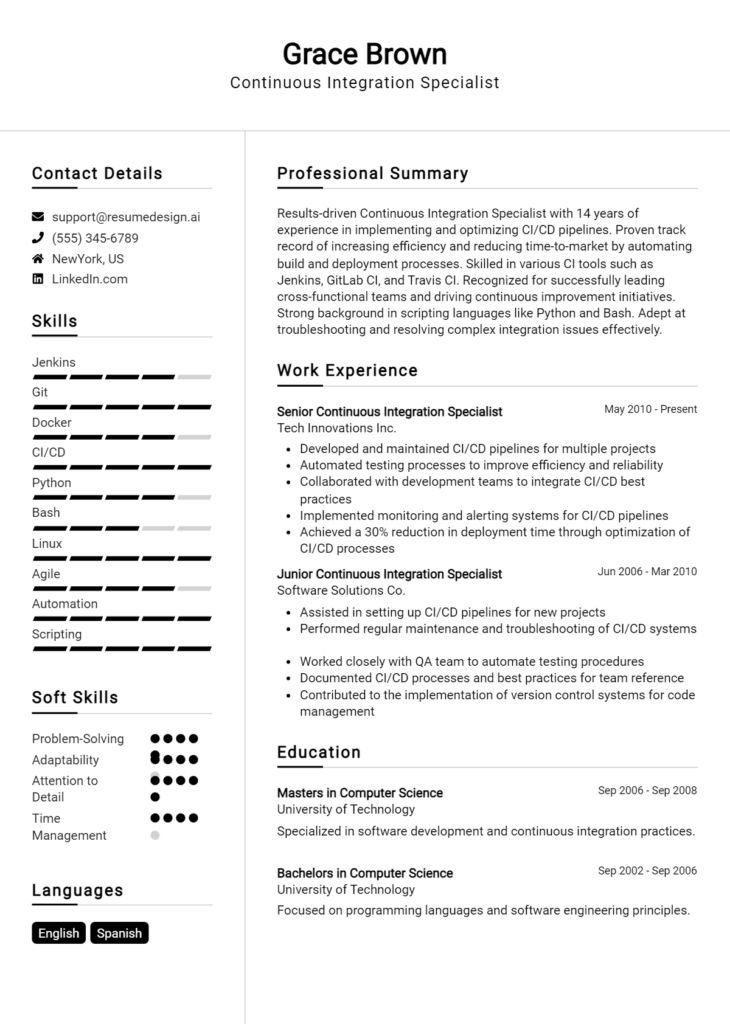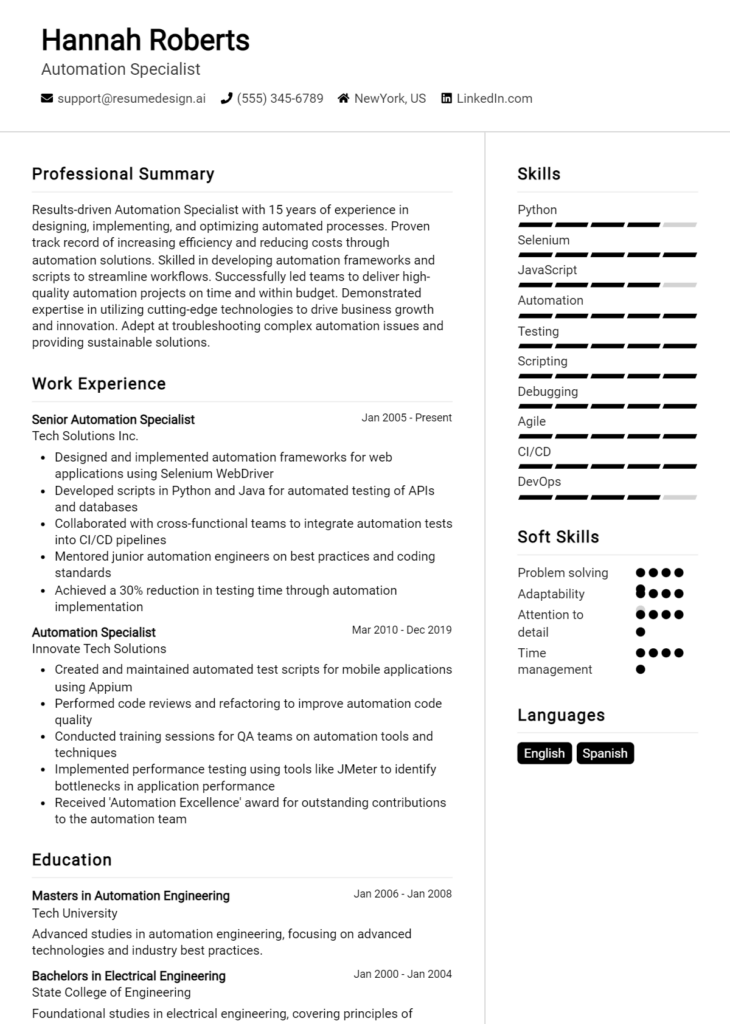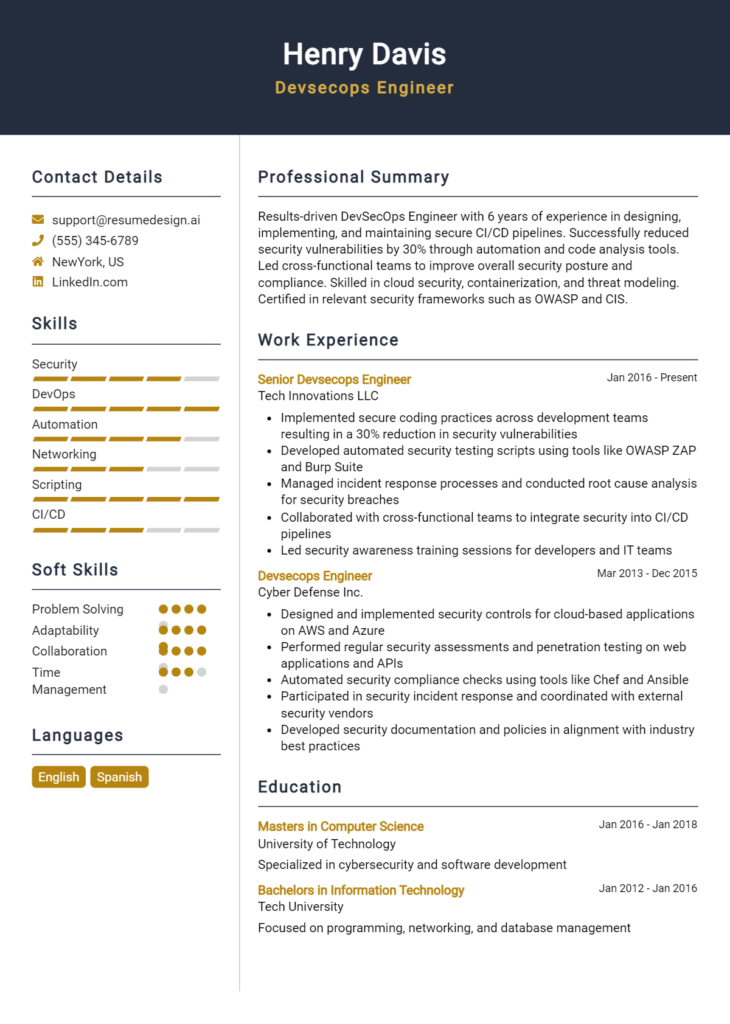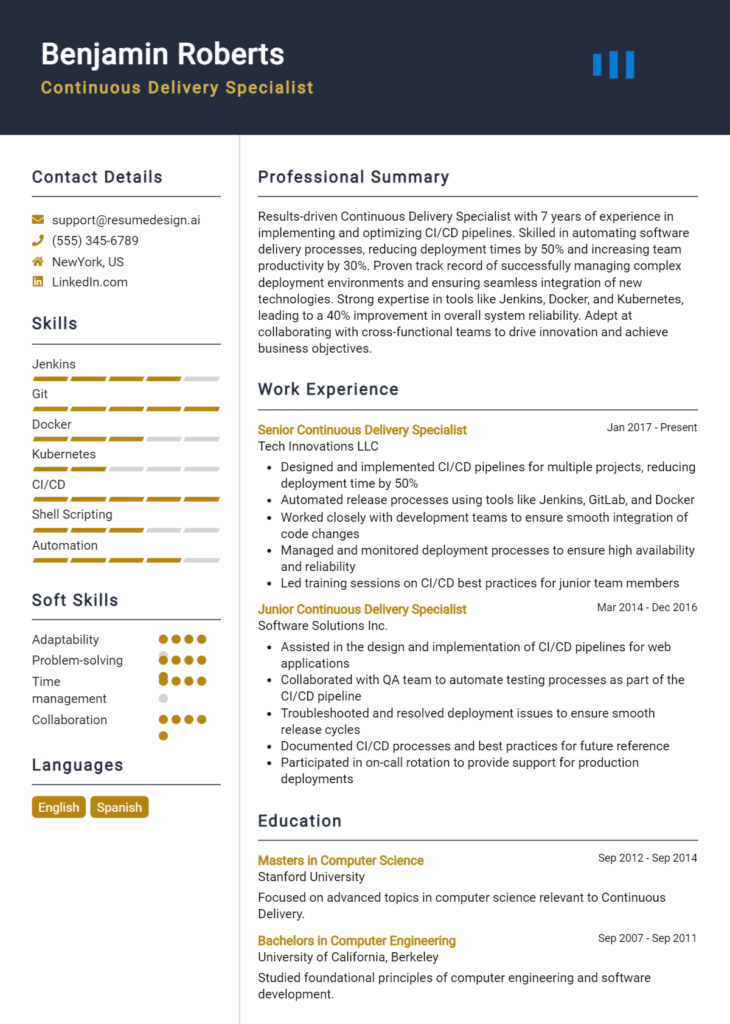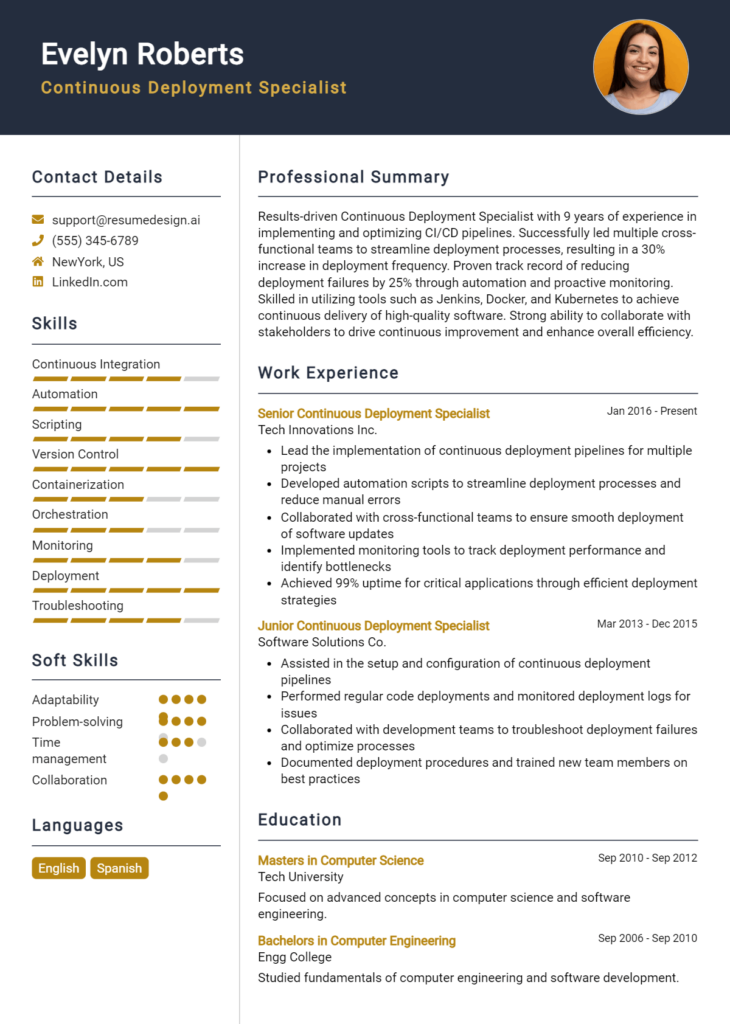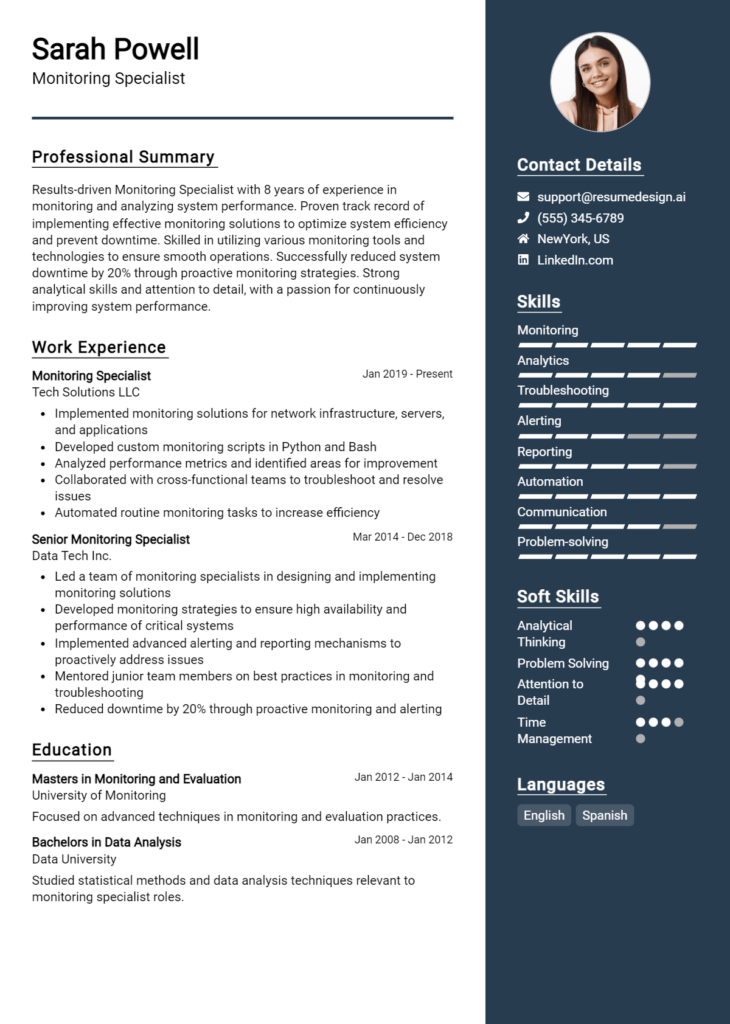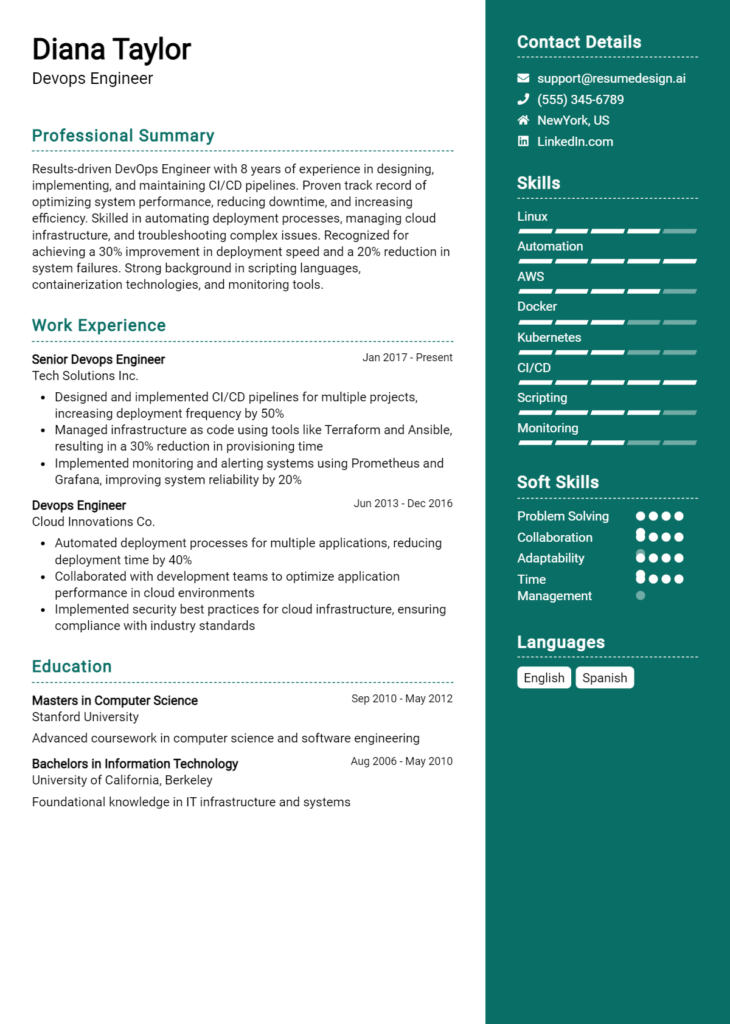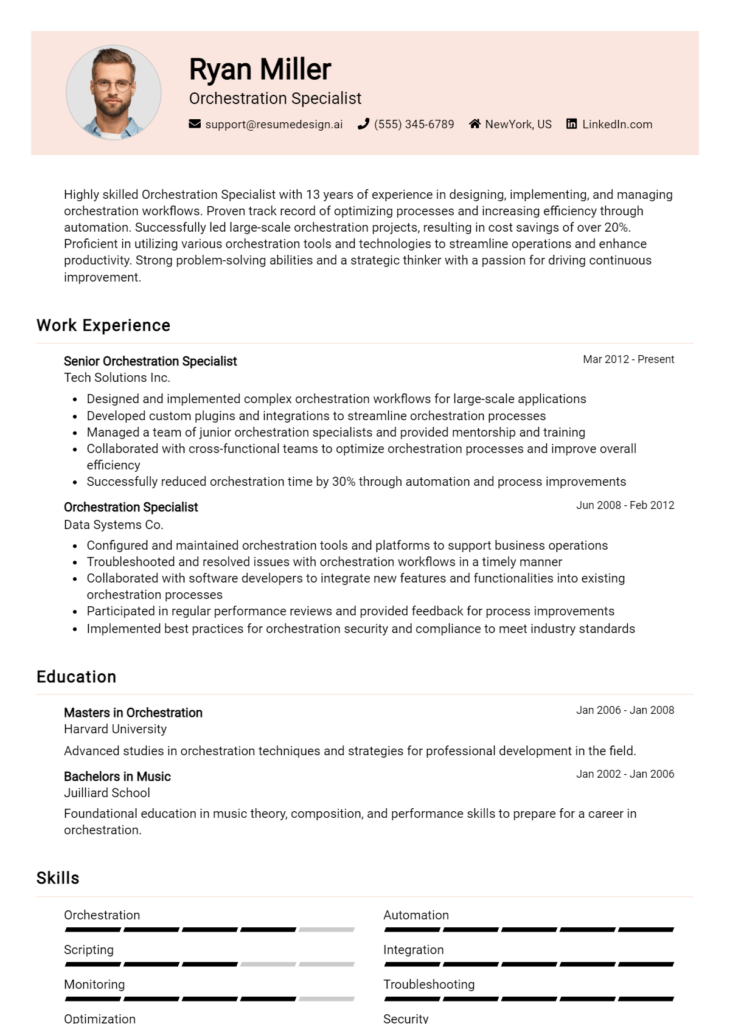Containerization Specialist Core Responsibilities
A Containerization Specialist plays a pivotal role in modern software development and deployment, ensuring seamless integration and operation of containerized applications across various environments. Key responsibilities include designing, implementing, and managing container orchestration platforms, as well as collaborating with development, operations, and security teams to optimize resource utilization and streamline workflows. Essential skills include technical proficiency in container technologies, operational insight, and strong problem-solving abilities. These skills are crucial for achieving organizational goals, and a well-structured resume can effectively showcase these qualifications, setting candidates apart in a competitive job market.
Common Responsibilities Listed on Containerization Specialist Resume
- Design and implement containerization strategies for applications.
- Manage container orchestration systems like Kubernetes and Docker Swarm.
- Collaborate with development teams to optimize application deployment.
- Monitor and troubleshoot containerized applications and environments.
- Ensure security best practices are applied to container deployments.
- Automate deployment processes using CI/CD pipelines.
- Conduct performance tuning and resource optimization for containers.
- Document containerization processes and procedures for team reference.
- Provide training and support for teams adopting container technologies.
- Stay updated with emerging containerization trends and tools.
- Evaluate and select appropriate tools for container management.
High-Level Resume Tips for Containerization Specialist Professionals
In the competitive landscape of technology and software development, a well-crafted resume is essential for Containerization Specialist professionals aiming to make a strong first impression on potential employers. Given that the resume often serves as the initial point of contact between candidates and hiring managers, it must effectively showcase not only the applicant's skills and expertise in containerization technologies but also their notable achievements. An impactful resume can set a candidate apart in a crowded job market, capturing the attention of employers who seek individuals with both technical knowledge and problem-solving abilities. This guide will provide practical and actionable resume tips specifically tailored for Containerization Specialist professionals, helping them present their qualifications in the best light possible.
Top Resume Tips for Containerization Specialist Professionals
- Tailor your resume to match the job description by incorporating relevant keywords and phrases.
- Highlight your experience with containerization tools such as Docker, Kubernetes, and OpenShift.
- Quantify your achievements, such as reduced deployment times or improved system reliability, to demonstrate impact.
- Include specific projects where you successfully implemented container solutions, detailing your role and the outcomes.
- Showcase your understanding of cloud services and orchestration strategies, as they are critical for container management.
- List certifications or training related to containerization and DevOps practices, emphasizing continuous learning.
- Utilize clear and concise language, avoiding jargon unless it is industry-standard and relevant to the role.
- Incorporate a summary statement at the top that encapsulates your expertise and career goals in containerization.
- Ensure your formatting is clean and professional, making it easy for hiring managers to navigate your resume.
- Include links to your GitHub or portfolio showcasing relevant projects, demonstrating practical experience and skills.
By implementing these tips, Containerization Specialist professionals can significantly increase their chances of landing a job in their field. A tailored, well-structured resume that effectively communicates relevant skills and achievements not only enhances visibility to potential employers but also positions candidates as strong contenders for the roles they aspire to fill.
Why Resume Headlines & Titles are Important for Containerization Specialist
In the competitive job market for Containerization Specialists, a well-crafted resume headline or title is crucial. It serves as the first impression a hiring manager will have of a candidate, summarizing their key qualifications and professional identity in one impactful phrase. A strong headline can instantly grab attention, making a candidate stand out among a sea of applicants. It should be concise, relevant, and directly aligned with the job description, effectively communicating the candidate's expertise in containerization technologies, orchestration tools, and deployment strategies.
Best Practices for Crafting Resume Headlines for Containerization Specialist
- Keep it concise: Aim for a headline that is one sentence or phrase long.
- Be specific: Use terminology and keywords relevant to containerization and the job description.
- Highlight key qualifications: Focus on your most impressive skills or achievements.
- Include metrics: When possible, quantify your experience or successes to add credibility.
- Use action-oriented language: Start with strong action verbs to convey confidence and capability.
- Tailor for the role: Customize your headline for each job application to reflect the specific position.
- Stay professional: Avoid casual language; maintain a tone that reflects industry standards.
- Use industry keywords: Incorporate relevant keywords that hiring managers may be searching for.
Example Resume Headlines for Containerization Specialist
Strong Resume Headlines
"Experienced Containerization Specialist with Proven Success in Multi-Cloud Deployments"
“Certified Kubernetes Administrator with 5+ Years of Experience in Microservices Architecture”
“DevOps Engineer Specializing in Container Orchestration and Continuous Deployment Pipelines”
Weak Resume Headlines
“Looking for a Job in Tech”
“IT Professional with Various Skills”
The strong headlines are effective because they are specific and tailored to the role of a Containerization Specialist, showcasing the candidate's unique skills and professional achievements. They immediately convey the candidate's value to potential employers. In contrast, the weak headlines fail to impress due to their vagueness and lack of relevant details, which do not provide hiring managers with a clear understanding of the candidate's qualifications or expertise.
Writing an Exceptional Containerization Specialist Resume Summary
A well-crafted resume summary is essential for a Containerization Specialist, as it serves as a powerful introduction to your qualifications and expertise. This brief yet impactful section allows you to quickly capture the attention of hiring managers by highlighting your key skills, relevant experience, and notable accomplishments in the field of containerization. A strong summary should be concise, tailored to the specific job you are applying for, and emphasize your ability to optimize containerized applications, manage orchestration tools, and streamline deployment processes. By doing so, you set the stage for your resume, encouraging hiring managers to delve deeper into your qualifications.
Best Practices for Writing a Containerization Specialist Resume Summary
- Quantify Achievements: Include measurable outcomes from your previous roles to demonstrate your impact.
- Focus on Skills: Highlight key technical skills relevant to containerization, such as Docker, Kubernetes, and CI/CD.
- Tailor for the Job Description: Customize your summary to align with the specific requirements and terminology of the job posting.
- Keep it Concise: Aim for 2-3 sentences that deliver a powerful message without overwhelming the reader.
- Use Action Verbs: Start sentences with strong action verbs to convey your contributions effectively.
- Showcase Relevant Experience: Mention specific projects or roles that demonstrate your expertise in containerization.
- Emphasize Soft Skills: Include relevant soft skills such as collaboration and problem-solving, which are vital in technical roles.
- Maintain Professional Tone: Use professional language and avoid jargon that may not be understood by all readers.
Example Containerization Specialist Resume Summaries
Strong Resume Summaries
Results-driven Containerization Specialist with over 5 years of experience in deploying and managing scalable containerized applications using Docker and Kubernetes. Improved deployment speed by 40% through the implementation of CI/CD pipelines, significantly enhancing overall team productivity.
Detail-oriented Containerization Specialist skilled in orchestrating microservices architectures. Successfully led a cross-functional team that reduced application downtime by 30% by optimizing container management processes and automating deployment workflows.
Dynamic Containerization Specialist with a proven track record of integrating cloud solutions with container technologies. Achieved a 25% reduction in operational costs by streamlining resource allocation in AWS-based container environments.
Weak Resume Summaries
Experienced IT professional looking for a position in containerization. I have some experience with Docker and Kubernetes.
Containerization Specialist with knowledge of different tools. Seeking to apply skills to a new role in a tech company.
The strong resume summaries are effective because they quantify achievements, specify relevant skills, and directly relate to the responsibilities of a Containerization Specialist. They provide a clear picture of the candidate's impact and expertise. In contrast, the weak summaries are vague and lack measurable outcomes, making it difficult for hiring managers to assess the candidate’s true capabilities and fit for the role. These examples underscore the importance of specificity and quantification in creating a compelling resume summary.
Work Experience Section for Containerization Specialist Resume
The work experience section of a Containerization Specialist resume is critical in demonstrating a candidate's expertise and proficiency in the field. This section serves as a platform to showcase technical skills, such as proficiency in Docker, Kubernetes, and CI/CD pipelines, while also highlighting the individual's capacity to manage teams effectively and deliver high-quality products. By quantifying achievements—such as reduced deployment times or increased system reliability—and aligning past experiences with industry standards, candidates can provide tangible evidence of their capabilities, making a compelling case to potential employers.
Best Practices for Containerization Specialist Work Experience
- Highlight specific technical skills relevant to containerization, such as Docker, Kubernetes, and orchestration tools.
- Quantify achievements with metrics, such as percentage improvements in deployment speed or cost savings.
- Include examples of collaboration in team settings, emphasizing cross-functional teamwork and communication skills.
- Detail project management experiences that showcase the ability to lead containerization initiatives from concept to execution.
- Align experiences with industry standards and best practices, demonstrating knowledge of current trends and technologies.
- Use action verbs to convey impact and involvement, making it clear what role you played in each experience.
- Tailor the work experience section to reflect the requirements of the job description, ensuring relevance and alignment.
- Provide context for each role, such as company size and industry, to help employers understand the scope of your experience.
Example Work Experiences for Containerization Specialist
Strong Experiences
- Led a team of 5 engineers to successfully migrate 75% of legacy applications to Docker containers, resulting in a 40% reduction in deployment time.
- Implemented a Kubernetes-based orchestration platform that improved system reliability by 30% and reduced downtime during updates.
- Collaborated with cross-functional teams to design and deploy a CI/CD pipeline, increasing deployment frequency by 60% while maintaining high-quality standards.
- Conducted training workshops for 20+ staff members on containerization best practices, enhancing team capabilities and improving project outcomes.
Weak Experiences
- Worked on containerization projects.
- Assisted in deploying applications to the cloud.
- Helped the team with various tasks related to Docker.
- Participated in meetings about containerization strategies.
The examples listed as strong experiences are considered effective because they provide specific, quantifiable outcomes and clearly illustrate leadership and collaboration in technical projects. In contrast, the weak experiences lack detail and measurable results, making it difficult for potential employers to gauge the candidate's true impact or contributions. The strong examples demonstrate a proactive approach and a solid understanding of containerization, while the weak examples come across as vague and unimpressive, failing to convey the candidate's capabilities effectively.
Education and Certifications Section for Containerization Specialist Resume
The education and certifications section of a Containerization Specialist resume plays a crucial role in demonstrating the candidate's academic foundation, industry-relevant certifications, and commitment to continuous professional development. This section serves as a testament to the candidate's knowledge and expertise in containerization technologies and practices. By including relevant coursework, certifications from recognized authorities, and specialized training programs, candidates can significantly enhance their credibility and showcase their alignment with the specific requirements of the job role, making them stand out in a competitive job market.
Best Practices for Containerization Specialist Education and Certifications
- Include only relevant degrees and certifications pertinent to containerization and cloud technologies.
- Detail any specialized training programs or workshops that enhance your expertise in container orchestration and management.
- Highlight advanced or industry-recognized credentials, such as Certified Kubernetes Administrator (CKA) or Docker Certified Associate (DCA).
- Provide information on relevant coursework that demonstrates your understanding of containerization principles and practices.
- List certifications in a clear format, including the issuing organization and the date obtained.
- Keep the section concise and focused, avoiding any unrelated educational background or certifications.
- Regularly update this section to reflect new certifications and courses that enhance your qualifications.
- Consider including any online courses from reputable platforms that are relevant to containerization technologies.
Example Education and Certifications for Containerization Specialist
Strong Examples
- Bachelor of Science in Computer Science, University of Technology
- Certified Kubernetes Administrator (CKA), Cloud Native Computing Foundation
- Docker Certified Associate (DCA), Docker, Inc.
- Advanced Containerization Techniques, Coursera (offered by Google Cloud)
Weak Examples
- Associate Degree in Culinary Arts, Community College
- Certification in Microsoft Office Suite, Microsoft
- High School Diploma, Anytown High School
- Outdated CompTIA A+ Certification, CompTIA (obtained in 2010)
The strong examples are considered effective because they directly align with the skills and knowledge required for a Containerization Specialist, showcasing relevant degrees and industry-recognized certifications that reflect current technologies. Conversely, the weak examples highlight educational qualifications and certifications that are either unrelated to the field of containerization or outdated, which fail to enhance the candidate's relevance or credibility in this specialized role.
Top Skills & Keywords for Containerization Specialist Resume
In the rapidly evolving tech landscape, the role of a Containerization Specialist is crucial for organizations aiming to streamline their application deployment processes. A well-crafted resume that highlights relevant skills can make a significant difference in standing out to potential employers. Skills not only demonstrate a candidate's technical aptitude but also showcase their ability to adapt, communicate, and work collaboratively within teams. Emphasizing both hard and soft skills on a resume helps create a comprehensive picture of the candidate’s capabilities, making it easier for hiring managers to assess their fit for the role. For more insights on how to effectively list your skills, check out this skills guide.
Top Hard & Soft Skills for Containerization Specialist
Soft Skills
- Strong communication skills
- Team collaboration
- Problem-solving mindset
- Attention to detail
- Adaptability and flexibility
- Time management
- Critical thinking
- Creativity
- Conflict resolution
- Customer-oriented approach
Hard Skills
- Proficiency in Docker and Kubernetes
- Experience with container orchestration
- Knowledge of CI/CD pipelines
- Familiarity with microservices architecture
- Understanding of cloud platforms (AWS, Azure, GCP)
- Scripting and automation (Bash, Python, etc.)
- Network configuration and management
- Security best practices in containerization
- Performance monitoring and tuning
- Version control systems (Git, SVN)
By emphasizing these skills on a resume, candidates can effectively showcase their qualifications and relevant work experience to prospective employers, enhancing their chances of landing an interview in this specialized field.
Stand Out with a Winning Containerization Specialist Cover Letter
Dear [Hiring Manager's Name],
I am excited to apply for the Containerization Specialist position at [Company Name] as advertised on [where you found the job listing]. With a deep understanding of container orchestration technologies, such as Docker and Kubernetes, combined with hands-on experience in deploying and managing containerized applications, I am confident in my ability to contribute effectively to your team. My background in software development and systems administration has equipped me with the skills necessary to streamline deployment processes and enhance operational efficiency.
In my previous role at [Previous Company Name], I successfully led a project to migrate legacy applications to a microservices architecture using containerization techniques. This not only reduced deployment time by 40% but also improved system reliability and scaling capabilities. By implementing best practices in container management, I was able to optimize resource utilization and reduce costs, which resulted in significant savings for the organization. My commitment to continuous improvement and my proactive approach to problem-solving have allowed me to stay ahead of industry trends and devise innovative solutions.
I am particularly impressed by [Company Name]'s commitment to leveraging cutting-edge technologies to drive business outcomes. I am eager to bring my expertise in CI/CD pipelines and cloud-native development to your team, ensuring that your applications are not only scalable but also maintainable in a rapidly evolving landscape. I thrive in collaborative environments and believe in the power of cross-functional teamwork to achieve shared goals.
Thank you for considering my application. I look forward to the opportunity to discuss how my skills and experiences align with the needs of [Company Name]. I am excited about the possibility of contributing to your innovative projects and being part of a team that is dedicated to excellence in containerization practices.
Sincerely,
[Your Name]
[Your Phone Number]
[Your Email Address]
Common Mistakes to Avoid in a Containerization Specialist Resume
When crafting a resume for a Containerization Specialist position, it's crucial to avoid common pitfalls that could undermine your chances of landing an interview. A well-structured resume should highlight your skills and experience in container technologies, but many candidates make mistakes that can detract from their qualifications. Here are some common mistakes to avoid when creating your resume:
Neglecting to Tailor the Resume: Failing to customize your resume for the specific job can make it look generic and unappealing. Always align your skills and experiences with the job description to demonstrate your suitability.
Overloading with Technical Jargon: While it's important to showcase your technical expertise, using excessive jargon can confuse hiring managers. Aim for a balance between technical language and clear communication.
Ignoring Soft Skills: Focusing solely on technical competencies can overlook essential soft skills such as problem-solving, teamwork, and communication. Highlighting these skills shows that you are well-rounded.
Lacking Quantifiable Achievements: Simply listing responsibilities without quantifying your achievements can weaken your resume. Use metrics to illustrate your impact, such as "increased deployment speed by 30%."
Using an Unorganized Format: A cluttered or confusing layout can make it difficult for hiring managers to read your resume. Use clear headings, bullet points, and consistent formatting for better readability.
Omitting Relevant Certifications: Failing to mention relevant certifications (like Docker, Kubernetes, or AWS) can be a missed opportunity. Ensure that your qualifications are prominently displayed.
Inconsistent Employment Dates: Inaccurate or inconsistent dates can raise red flags for potential employers. Double-check that your employment timeline is coherent and accurate.
Neglecting to Proofread: Spelling and grammatical errors can create an unprofessional impression. Always proofread your resume or have someone else review it to catch any mistakes.
By avoiding these common mistakes, you can create a compelling resume that effectively showcases your qualifications as a Containerization Specialist.
Conclusion
As we wrap up our discussion on the role of a Containerization Specialist, it's clear that this position is crucial in modern software development and deployment. Key responsibilities include designing, implementing, and managing containerized applications, optimizing resource utilization, and ensuring seamless integration within DevOps practices. The demand for skilled professionals in this field is on the rise, underscoring the importance of having a well-crafted resume that highlights your expertise and accomplishments.
To give your application the best chance of success, take a moment to review your Containerization Specialist resume. Ensure it effectively showcases your technical skills, experience with container orchestration tools like Kubernetes and Docker, and any relevant certifications. Remember, a polished resume can make a significant difference in standing out to potential employers.
To help you in this process, there are various tools available that can enhance your resume. Explore our curated resume templates to find a professional layout that suits your style. You can also utilize the resume builder for a step-by-step guide to creating a compelling resume tailored for the Containerization Specialist role. Additionally, check out our resume examples for inspiration on how to effectively present your skills and experiences. Don't forget to craft a strong first impression with a well-designed cover letter template.
Take action today and refine your resume to ensure you are well-prepared to seize the exciting opportunities that await in the field of containerization!

